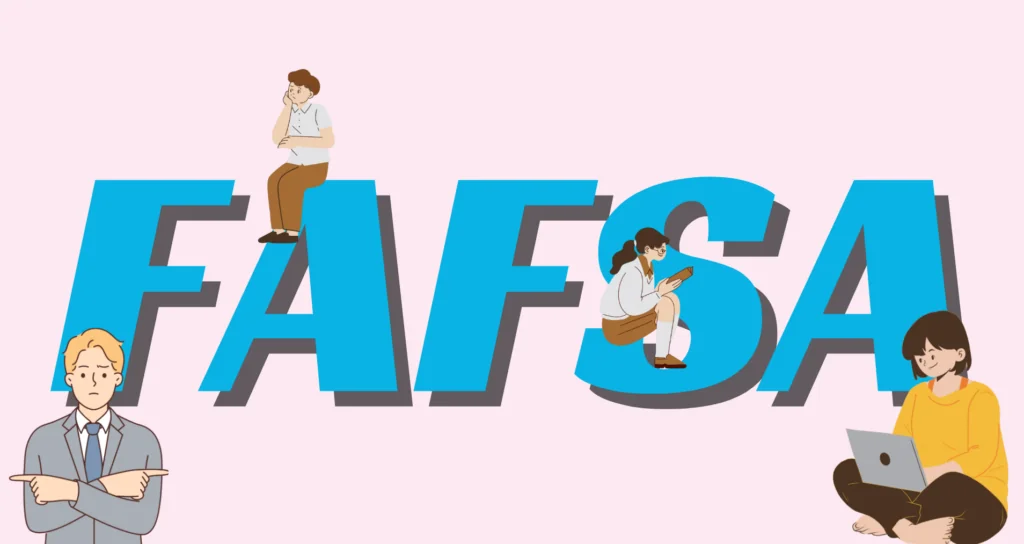As has been recently reported by USA Today, millions of students and their families face a pressing deadline as they wait to compare financial aid offers from colleges. The Education Department’s announcement of further delays in the Free Application for Federal Student Aid (FAFSA) processing has thrown a wrench into the college application season, causing widespread concern and frustration.

✅ AI Essay Writer ✅ AI Detector ✅ Plagchecker ✅ Paraphraser
✅ Summarizer ✅ Citation Generator
Key Takeaways
- The Education Department has encountered delays in rolling out updates to the FAFSA, pushing the timeline for colleges and students to receive financial aid information to the “first half of March” at the earliest.
- The delays mean that students may only have weeks to make decisions about their college education, as many schools have a May 1 commitment deadline.
- A federal watchdog is now auditing the FAFSA rollout process in response to these delays and the challenges they present to students and institutions.
The core of the issue lies in the recent updates to the FAFSA, intended to simplify the process and increase the number of students eligible for financial aid. However, the implementation has been anything but smooth, with delays compounded by a significant error in adjusting families’ incomes for inflation. This mistake has disrupted the timeline for financial aid offers, leaving colleges and students in a state of uncertainty.
Mercedes Amaya, an associate vice provost at Miami Dade College, shared her dual perspective as an administrator and a parent navigating these challenges. “We’re going to have to adjust,” Amaya remarked, highlighting the strain on both students and educational institutions.
Adjustments and Uncertainty
In response to the unprecedented delays in FAFSA processing announced by the Education Department, colleges and universities across the United States are being forced to reconsider their timelines for financial aid and admissions decisions.
Recognizing the undue stress and constraints placed on students and their families, Oregon State University has taken proactive measures by postponing its advanced tuition deposit deadline for incoming freshmen by an additional month. This decision reflects a broader understanding within the higher education community that the original May deadline would create “impossible constraints on parents and students,” as the university expressed in a statement.

Despite these adjustments by some larger institutions, not every college is in a position to offer such flexibility. Smaller colleges, often operating with limited resources and tighter budgets, may find it challenging to extend deadlines without jeopardizing their enrollment processes and financial planning. The delays in FAFSA processing not only threaten to complicate the admissions cycle but also risk amplifying financial uncertainties for prospective students. This situation could lead to a scenario where students, particularly those from vulnerable backgrounds who rely heavily on financial aid, might reconsider their college aspirations altogether.
Looking Ahead
The federal government’s ambitious efforts to revamp the financial aid system through modifications to the Free Application for Federal Student Aid (FAFSA) have garnered a spectrum of responses. The goal of these reforms is noble: to expand access to college by making it more affordable for an additional 610,000 students, as claimed by Education Department officials. However, the reality of implementing these changes has proven challenging, leading to significant delays and a host of unforeseen complications. This situation has prompted the Government Accountability Office (GAO) to initiate an audit at the behest of congressional Republicans, signaling the depth of concern over the mishandling of the FAFSA rollout and its implications for students nationwide.
Senator Bill Cassidy, a vocal critic of the Biden administration’s policies in education, has highlighted the dire consequences of these delays. He warns that the uncertainty surrounding financial aid could deter many students from pursuing higher education altogether, a concern that resonates with families and educators alike.
“Many students may forgo college because they don’t know they can afford it,”
Cassidy remarked, emphasizing the critical need for a timely resolution to the ongoing issues with FAFSA processing.
The Education Department, under scrutiny for its handling of the situation, has expressed its commitment to rectifying the problems and improving the financial aid process. Spokesperson Johanny Adames conveyed the administration’s dedication to making college more accessible, despite the challenges posed by a lack of increased funding from Congress.
“These are the most significant changes to the financial aid system in over 40 years,”
Adames stated, acknowledging the monumental task at hand and the efforts being made to overcome it.
The Main Point
As the department strives to address these challenges, the overarching hope is that future applicants will navigate a more streamlined and predictable financial aid process. This aspiration is crucial not only for easing the immediate anxiety faced by students, parents, and educational institutions but also for ensuring that higher education remains a viable and accessible option for all who wish to pursue it. In the meantime, the education community waits with bated breath for solutions that will bring stability to the college admissions landscape and safeguard the dreams of countless students aiming for higher education.
Follow us on Reddit for more insights and updates.





Comments (0)
Welcome to A*Help comments!
We’re all about debate and discussion at A*Help.
We value the diverse opinions of users, so you may find points of view that you don’t agree with. And that’s cool. However, there are certain things we’re not OK with: attempts to manipulate our data in any way, for example, or the posting of discriminative, offensive, hateful, or disparaging material.